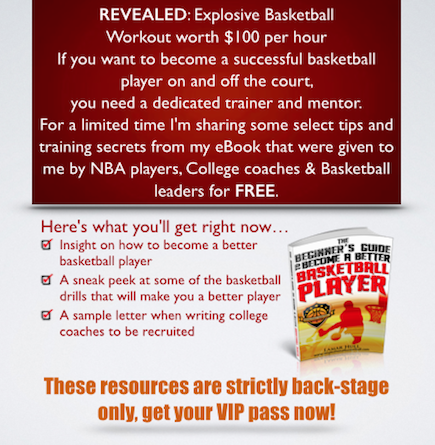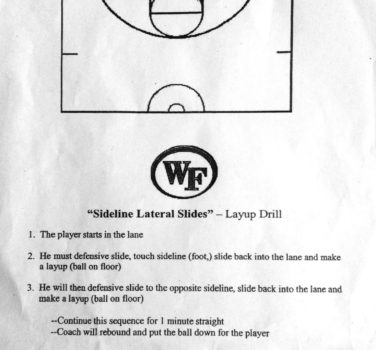Coaching Basketball for the First Time
If you are coaching youth basketball for the first time, don’t panic if you lack the coaching experience or basketball knowledge. Young kids aren’t into X’s and O’s. They want to have fun while learning the basics of the game.
If the kids are younger than eight, most likely they haven’t become serious about playing basketball yet, so during the colder months, parents want their child to stay active, therefore indoor basketball provides the perfect opportunity.
Most kids beg their parents to play basketball in order to build friendships and have fun. So, don’t push them too hard. You don’t have to be loud, commanding and competitive in order to be a good youth basketball coach.
Kids hate to be yelled at and they are more interested in having a good time than winning. Playing with success is important but it shouldn’t overshadow everything else that is enjoyable about the game of basketball.I just finished coaching my daughters 6 and under team and I’m sure you can imagine how chaotic that was.
I didn’t spend a lot of time coaching. I taught the kids how to follow through on their shot, make a chest and bounce pass, play their spots on defense and that was pretty much it. Again, these kids were there to burn some energy, play with their friends and learn very basic basketball skills.
Keeping their attention more than 2 seconds was difficult. Don’t worry, I coach a 12 and under basketball team as well and it is sometimes challenging to maintain their attention for long periods of time.
When coaching young kids, keep a light atmosphere. Make practice a fun place to be so that the kids will want to return for the next one and try their hardest. Play games of horse, around the world and have three point contests.
These types of contest help build a friendly competitive nature that kids need to be successful in basketball. If you have a portable basketball hoop, lower the rim and let the kids dunk if they can or shoot the right way.
Empower them to fall in love with the game. Remember, they signed up for youth basketball so that they can have the time of their lives, not to compete for a championship. It is all about building their confidence and fostering relationships.
Before every game, I made the kids sit in a circle and say each other’s name. I wanted to provide good memories even if the kids never saw each other again. The biggest thing that I taught my daughter who is 4 and her teammates was, to have fun and play hard. At that age, teaching effort is so important because fostering the right behaviors could impact their entire lives!
A lot of your players will be playing the sport for the first time. So, take it easy on them. If you have to, separate them from the more experienced players. Let the advanced players play in a self-policed scrimmage while you teach basketball basics to the first time players.
If you were to set up a scrimmage or a drill competition between the experienced players and the first time players, you would risk crushing the confidence of the inexperienced kids. That is the worst possible scenario. Kids are very delicate and impressionable so don’t jeopardize their self-esteem. And never embarrass them. Once they are comfortable dribbling, passing, and shooting, slowly integrate them into scrimmages and competitions with the more advanced kids.
Keep it simple. Focus on technique and teamwork. Show them how to shoot a proper jump shot. Showing is always better than telling. Teach the kids to dribble the ball with the laces always horizontal. Teach them the basics of chest passes and bounce passes. Focus in on layups because they are easy and will build the kids’ sense of self-worth.
Depending on the age group, you want to continue to emphasize proper shooting technique when shooting from long range. Honestly, I wouldn’t recommend young players taking 3-point shots. If they have to throw or push it to the rim, you do not want to foster bad shooting fundamentals. Kids that shoot from too far away at a young age can develop bad shooting habits. Don’t attempt to set up special offensive plays because it will make the game too rigid. Remember, they are playing for fun and looking to exercise.
Offer your players heaps of praise. It is so important to build your young players’ confidence. When the real games start, rotate the players in and out so each one plays nearly the same amount. Kids are sensitive and have fragile egos. You are responsible for nurturing them, so never tear them down, especially in front of their peers.







LEAVE A COMMENT